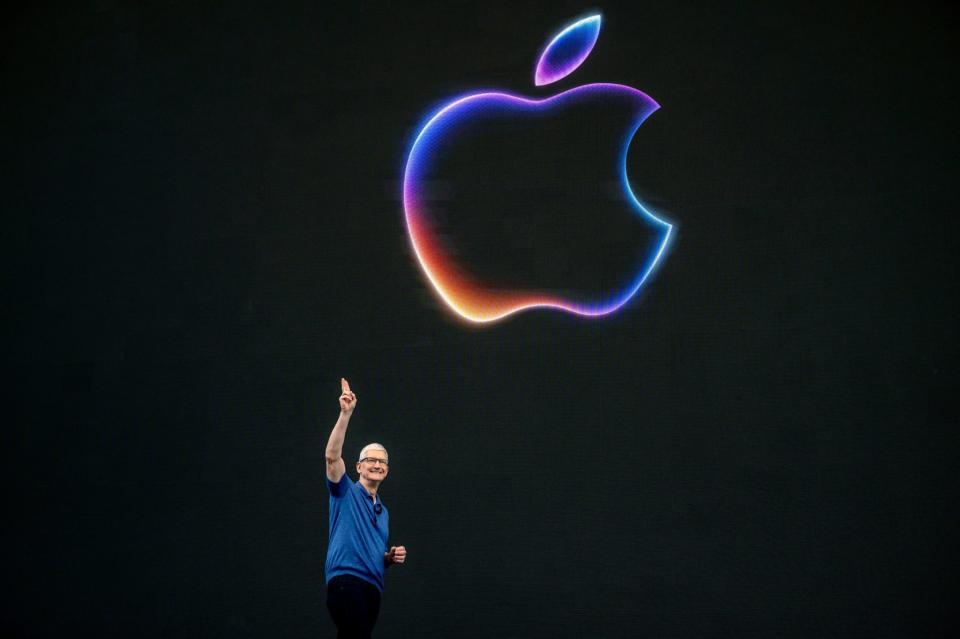Apple’s big AI play should succeed in selling more iPhones

When Apple made its big AI play yesterday, Wall Street’s reaction seemed tepid at best. The company’s share price fell nearly 2%—but it merrily bounced back this morning with a rise of over 5%.
There's a reason for that.
What Apple revealed yesterday was very well signposted in recent reporting, meaning the biggest surprise was probably the neat new iPad calculator app, which lets users get quick math solutions with handwriting (well, that and the audacious/groanworthy decision to retcon "AI" as "Apple Intelligence"). I'd chalk the initial drop up to the fact that, with the recent $471 billion rally in Apple stock, the markets priced in what was known, plus a little extra for what wasn’t. They didn't get any big surprises. But beyond the sentiment of the moment, who really cares about that?
It's easy to get caught up in the race for technical AI superiority—because it’s interesting and it does matter—but the fact is that Apple is still primarily a device company, and even more specifically the iPhone company, with its iconic smartphone line accounting for the majority of its revenue (58% in Q1 of this year.)
That means the most important thing for Apple yesterday was the ability of its announcement to drive sales, and analysts say there’s a very good chance it will do so in spades. “What we saw today was more compelling than anything we've seen since” 2020, when the iPhone 12 added 5G connectivity, D.A. Davidson analyst Gil Luria told Reuters.
At this point, let me pause to say I’m feeling extremely smug, because last year I bought an iPhone 15 Pro, with my decision to plump for the pricier model largely being driven by the facts that: a) Apple’s big AI push was likely to come this year; and b) Apple typically uses the Pro line to introduce processing horsepower that will trickle down to more mass-market iPhones the following year, at which point it introduces a new version of iOS that can more fully take advantage of that hardware. And so it came to pass—if you’re an iPhone user who wants all that AI goodness and you don’t already have the 15 Pro or Pro Max, you will need to upgrade this year.
Apple’s new AI features show the company playing to its strengths, as my colleague Sharon Goldman wrote yesterday. This is AI for “normies,” as she put it, “who simply want AI that is easy, useful, protective of privacy and just works.” Siri’s finally getting more useful, with a vastly greater capacity for understanding what you’re asking it to do. It’s gaining the ability to do stuff on your behalf within apps (albeit only next year) along with capabilities in the arenas of image and text creation and refinement, transcription and summarization, and on-device search.
As for that much-heralded ChatGPT deal, Apple is attempting to integrate OpenAI’s crown jewel while also keeping it at arm’s length in a way that highlights Apple’s longstanding pitch as the smartphone player that primarily acts in its customers’ interests. (To blatantly symbolize this stance, Apple had OpenAI CEO Sam Altman at the event, but not on-stage.)
To be sure, it's somewhat weird for Apple to offer its users ChatGPT functionality while making sure each time that they really want to use it, and warning them to check important ChatGPT-generated information for mistakes. But I’m not sure there’s any better way to offer the most cutting-edge AI technology at an operating-system level while also being frank about its limitations, and placing some distance between Apple and the “hallucinations” that are endemic to today’s generative AI tools.
Naturally, Elon Musk tried to commandeer some of the Apple-watching public’s attention by declaring that he wouldn’t allow employees at his many companies to use AI-capable iPhones at work, because the OpenAI integration constitutes “an unacceptable security violation.”
There is something to what he says, in the sense that companies should be very careful of letting proprietary information get near cloud-based AI providers that might ingest it into their models. But as my colleague Eleanor Pringle wrote today, both Apple and OpenAI have laid out extensive pledges about the privacy protections they’re putting in place. The proof will be in the pudding, but for now I largely see Musk’s contribution as just another snipe at OpenAI, which he cofounded before it repelled his attempt to take the reins.
So in summary, yesterday’s reveal was extremely Apple, and also likely to do the trick in terms of making this year’s iPhones competitive and indeed desirable on the feature front. I look forward to getting hands-on with iOS 18.
More news below.
David Meyer
Want to send thoughts or suggestions to Data Sheet? Drop a line here.
This story was originally featured on Fortune.com

 Yahoo Finance
Yahoo Finance 